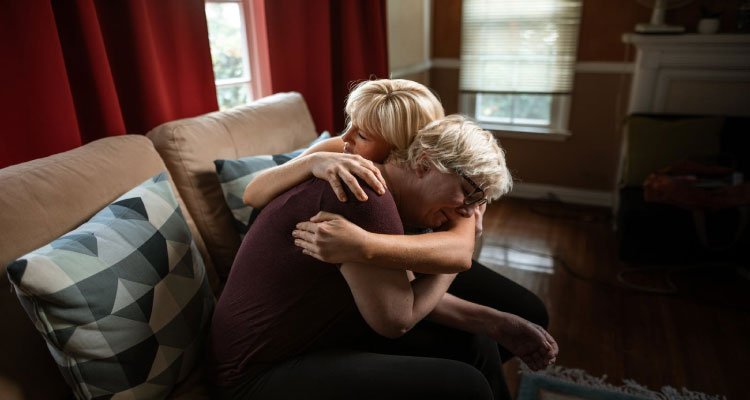What are the signs of a toxic love? Let’s start with something we’ve all experienced: comforting a needy friend. Imagine your friend, looking sad, telling you about their troubles. You listened, understood, and shared their feelings. That’s empathy – it connects us.
But what if I said there’s a tricky side to empathy? It’s called “toxic empathy.” This article is here to talk about it. Toxic empathy can harm our relationships, and we want to understand how.
Understanding Toxic Empathy (Toxic Love)
First, let’s figure out what it is. Toxic empathy isn’t just feeling for someone; it’s getting so wrapped up in their feelings that we forget our own. It’s like losing ourselves in someone else’s emotions.
Now, why should we care about unmasking it? Well, here’s the deal – toxic empathy might seem caring, but it can wear us out and strain our relationships. When we soak up others’ emotions without a limit, we harm ourselves and the people we care about.
Think about Sarah. She cared deeply for her friends but took on all their worries. Over time, she felt drained and overwhelmed. Toxic empathy had made her lose touch with her own feelings.
Seeing the Harm in Toxic Love
Now, let’s see how toxic Toxic love hurts us. It can lead to resentment because we forget about our own needs while trying to carry others’ emotional baggage. Relationships built on this shaky ground often fall apart due to unspoken frustrations.
Imagine this, John and Maria. John always said yes to Maria to avoid conflict, but he felt upset inside. Their relationship suffered because of this. If they had understood this subject matter, John could have spoken up, and Maria could have listened better.
To sum it up, knowing about toxic love is vital for our own well-being and our relationships. When we spot it, we can set healthier boundaries, care for ourselves, and build stronger connections with others.
Why Toxic Love Happens
Now, let’s dig deeper into why toxic love occurs. It’s essential to understand its roots to address it better. Toxic love often springs from our personal history and past experiences. Maybe we grew up in an environment where we felt responsible for others’ feelings or learned that our needs didn’t matter.
Society also plays a part. Sometimes, we’re taught that being selfless means absorbing others’ emotions entirely, even if it harms us. We might feel pressured always to put others first.
Why uncover these hidden triggers? Knowing why we lean towards toxic love can help us change. By understanding where it comes from, we can take steps to break free from it.
Breaking Free from Toxic Love
So, how do we unmask it and break the cycle? Let’s get practical. First, we need to recognize it in ourselves.
- Pay attention to when you’re neglecting your feelings for others. It’s okay to care for others, but not at the expense of your well-being.
- When you spot toxic love in someone you care about, offer a listening ear without judgment. Encourage them to express their true feelings, and let them know it’s okay to prioritize themselves, too.
Here’s the bright side: Relationships can flourish once toxic love is out in the open. They become more balanced, with room for both giving and receiving support. It’s a healthier path to empathy that strengthens bonds without losing yourself in the process.
The Therapeutic Revelation
As we journey towards unmasking and addressing toxic empathy, there comes the point where seeking professional therapy or counseling can be a necessary and transformative step. Let us explore when and how therapy becomes vital to this process.
Knowing When to Seek Therapy
Recognizing when therapy is needed can be a crucial turning point. If you find yourself consistently overwhelmed by the weight of others’ emotions, unable to establish healthy boundaries, or experiencing persistent emotional burnout, it may be time to consider therapy. Likewise, professional guidance can make a significant difference if your relationships are strained due to unaddressed toxic empathy.
The Healing Power of Therapy
Therapy offers a safe and supportive space to delve deeper into the roots of toxic empathy. A qualified therapist or counselor can help you uncover the underlying causes, whether they stem from childhood experiences, societal pressures, or personal beliefs. Through introspective exploration, therapy can provide insights that lead to personal growth and transformation.
In the context of relationships, therapy can be a game-changer. It allows couples or families to address it collectively. Therapists facilitate open and honest communication, helping individuals express their needs and feelings while fostering understanding among all parties involved. This can lead to healthier, more balanced connections.
Finding the Right Therapist
Choosing the right therapist or counselor is crucial for a successful therapeutic journey. Look for professionals with expertise in empathy-related issues, such as relationship dynamics, emotional boundaries, or empathy management.
Seek recommendations from trusted sources, such as friends, family, or medical professionals. Additionally, you can explore online directories and professional organizations specializing in therapy and counseling to find qualified professionals who are well-versed in addressing toxic empathy.
Remember that therapy is a personal journey; finding a therapist with whom you feel comfortable and understood is essential. Don’t hesitate to interview potential therapists, ask questions about their approach, and gauge whether you feel a connection with them.
In the therapeutic revelation, individuals and relationships have the opportunity to heal and grow by uncovering and addressing toxic empathy. Therapy guides this path, offering insights, strategies, and support to foster healthier, more authentic connections.
Concluding thoughts
Unmasking toxic empathy is an essential journey toward healthier, more authentic relationships. We’ve explored the hidden dangers of losing ourselves in others’ emotions and how it can strain our connections. Understanding its roots and recognizing when to seek professional help are crucial steps in this process.
Now, armed with knowledge and insights, you have the power to break free from toxic empathy’s grip and pave the way for balanced, fulfilling relationships. Remember, this journey is not just about understanding; it’s about taking action.
So, as you step forward, apply what you’ve learned and prioritize your emotional well-being and authentic connections. By doing so, you empower yourself and contribute to a world where empathy flourishes without hidden barriers. Embrace this path of facing what’s toxic, and let your relationships thrive.
Frequently Asked Questions (FAQs)
Q1: What is toxic empathy?
A1: It is when we absorb others’ emotions to such an extent that we lose ourselves in the process.
Q2: How does it affect relationships?
A2: It can strain relationships by leading to emotional burnout and the suppression of one’s own needs and feelings.
Q3: Can it be harmful even if it seems compassionate?
A3: Yes, while appearing caring, can harm both individuals and relationships in the long run.
Q4: What are the roots of toxic empathy?
A4: It often stems from personal history, past experiences, and societal pressures that emphasize selflessness.
Q5: When should I consider seeking therapy?
A5: If you consistently feel overwhelmed by others’ emotions or notice strained relationships due to toxic empathy, it may be time to seek professional help.
Q6: How can therapy help?
A6: Therapy can uncover the underlying causes and provide strategies to establish healthier emotional boundaries.
Q7: Where can I find a qualified therapist or counselor to help?
A7: You can seek recommendations from trusted sources, explore online directories, or contact professional organizations specializing in therapy.
Q8: Can recognizing and addressing toxic empathy lead to healthier relationships?
A8: Yes, recognizing and addressing it can pave the way for more balanced, fulfilling relationships, with room for both giving and receiving support.
Q9: What’s the key takeaway from unmasking toxic empathy?
A9: Unmasking it, is about understanding, taking action, and prioritizing your emotional well-being to build healthier, more authentic connections.
Q10: How can I empower myself to unmask toxic empathy?
A10: By applying what you’ve learned, you can take control of your relationships and contribute to a world where empathy thrives without hidden barriers.






